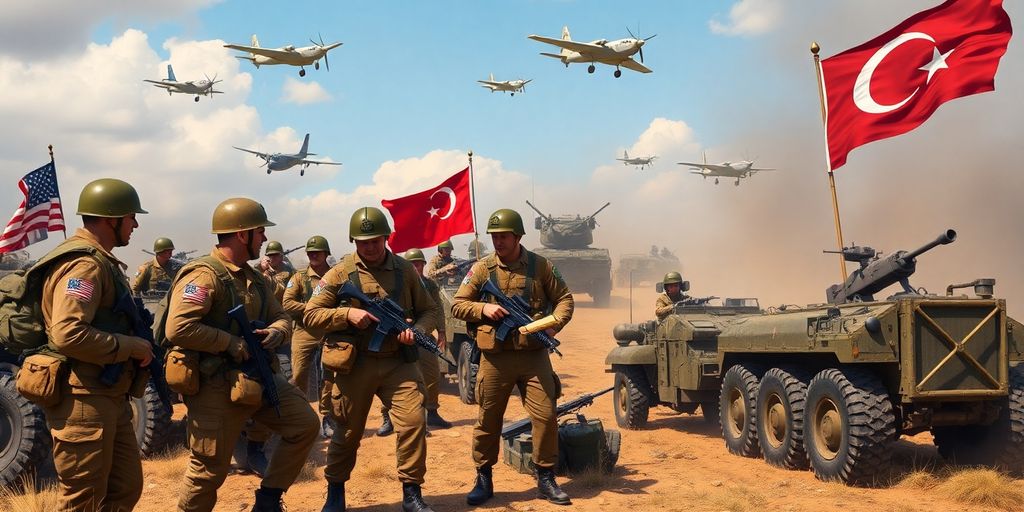Tensions between Turkey and Greece have escalated recently, with Turkey’s military ambitions towards Greece facing significant setbacks due to increased military support from the United States and France. This development has provoked strong reactions from Turkish leadership, particularly President Recep Tayyip Erdogan, who has expressed frustration over the shifting balance of power in the region.
Key Takeaways
- Turkey’s military plans for a potential invasion of Greece have been thwarted by US and French military support for Greece.
- Recent diplomatic meetings between Turkey and Greece aim to ease tensions, despite ongoing disputes over maritime boundaries.
- Erdogan’s government has reacted angrily to the enhanced military presence of the US and France in Greece, viewing it as a direct threat.
Background of Tensions
The historical rivalry between Turkey and Greece has been marked by disputes over territorial waters, energy exploration rights, and the status of the Aegean islands. Recent years have seen a resurgence of these tensions, particularly following Turkey’s aggressive military posturing in the region.
In April 2025, Turkey’s military strategy included plans for a potential incursion into Greek territory, specifically targeting Western Thrace and the Aegean islands. These plans were based on the assumption that Turkey could act swiftly before NATO and EU allies could respond. However, the increased military cooperation between Greece and its allies has changed the strategic landscape.
Diplomatic Efforts to Ease Tensions
In an effort to mitigate the rising tensions, senior diplomats and military officials from both Turkey and Greece met in Thessaloniki to discuss confidence-building measures. These measures include:
- Maintaining direct communication channels between military leaders.
- Limiting military exercises in the region.
- Exploring avenues for economic cooperation.
Despite these efforts, both nations remain at odds over critical issues, including maritime boundaries and energy rights. Greece’s recent release of a marine spatial planning map has further complicated discussions, as Turkey claims it violates its maritime jurisdiction.
The Role of the US and France
The military support provided by the US and France has significantly bolstered Greece’s defense capabilities. Key developments include:
- Increased US Military Presence: The US has expanded its military footprint in Greece, granting access to strategic bases that enhance NATO’s eastern flank.
- French Defense Agreements: Greece has entered into defense agreements with France, acquiring advanced military equipment and committing to mutual defense in case of an armed attack.
These developments have made any potential military action by Turkey riskier, as it could provoke a direct confrontation with the US, a scenario Ankara is keen to avoid.
Erdogan’s Response
In light of these changes, President Erdogan has publicly criticized the US and France for their military support of Greece. He has expressed concerns that Greece is becoming a base for American military operations, which he views as a direct threat to Turkey’s national security. Erdogan’s rhetoric reflects a broader frustration within Turkey regarding its strategic position in the region.
Conclusion
The evolving military dynamics in the Eastern Mediterranean underscore the complexities of Turkey-Greece relations. While diplomatic efforts are underway to ease tensions, the underlying disputes remain unresolved. The increased military cooperation between Greece, the US, and France has effectively thwarted Turkey’s invasion plans, leading to a precarious balance of power in the region. As both nations navigate these challenges, the potential for conflict remains a pressing concern for regional stability.
Sources
- Türkiye, Greece seek to build confidence amid tensions, Daily Sabah.
- Senior Greek diplomats, military officials host talks with neighbor Turkey to lower tension, The Washington Post.
- Turkey’s invasion plans for Greece thwarted by US, France, provoking angry outbursts from Erdogan –
Nordic Monitor, Nordic Monitor.






